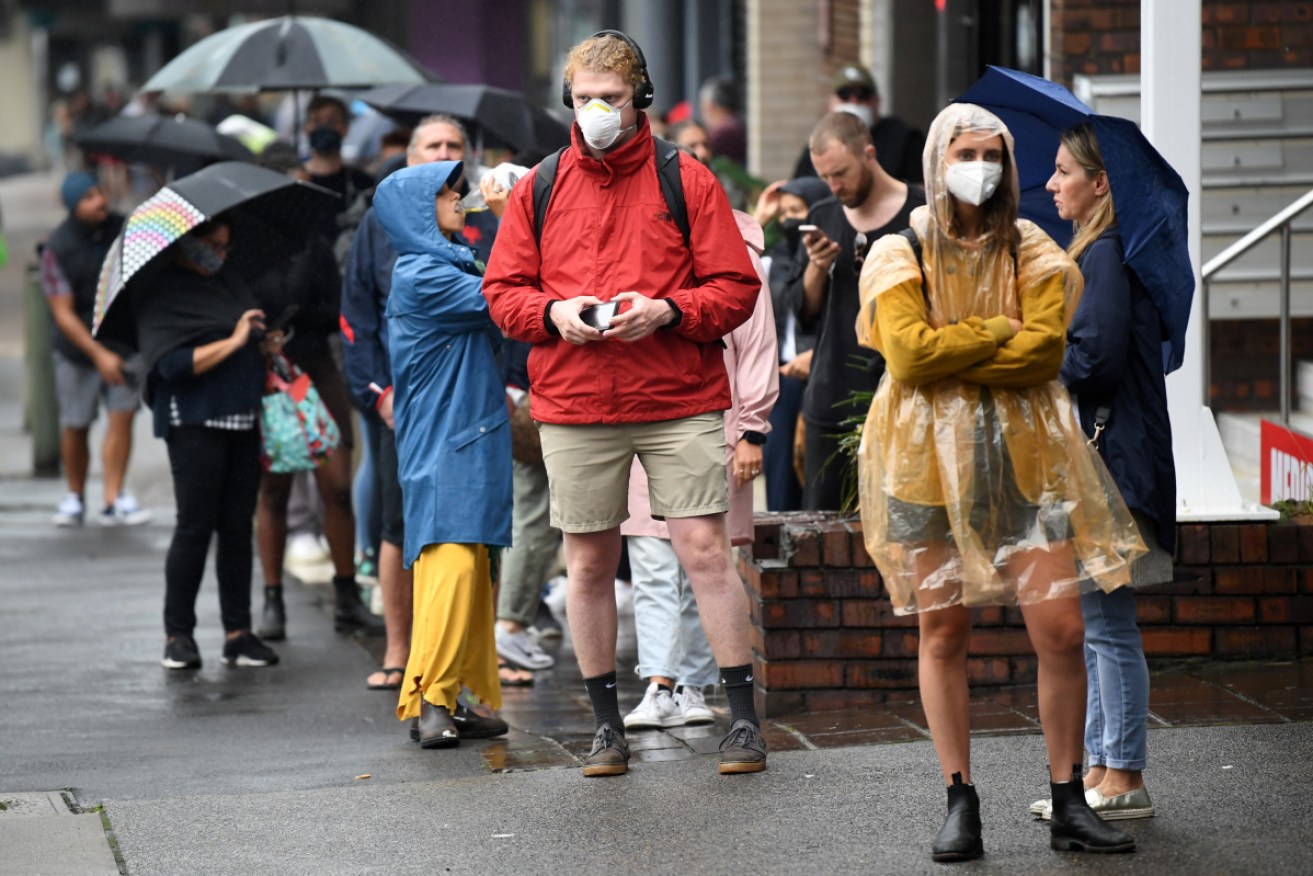$1500 payments for workers in $130bn package to save jobs


Lengthy queues formed outside the country's Centrelink offices in the days after coronavirus restrictions were imposed. Photo: AAP
Workers who face the dole queues as a result of COVID-19 will be offered a $1500 a fortnight “job keeper payment” in an unprecedented $130 billion hit to the budget.
Prime Minister Scott Morrison announced the new measure in Canberra on Monday afternoon, urging Australians to keep the faith as the government responded to “a whole new set of rules”.
Even during the Great Depression, a wage subsidy of this size and scale was never offered in Australia.
It will offer workers nearly three times what the unemployment benefit was just weeks ago, before it was doubled to $550 a week to help the thousands of workers laid off amid the expanding coronavirus crisis.
But it will be designed to help businesses keep workers on the books, rather than send them to the dole queues during government-ordered shutdowns.
“Now is the time to dig deep,” Mr Morrison said.
“This calls for unprecedented action. Governments are making decisions like they never have before. We are working now to a whole new set of rules.”
The payment will be available to full-time, part-time and casuals who have been working for a company for more than a year.
“Some will say it’s too little. Some will say it’s too much,” Mr Morrison said.
- States go it alone on stage three restrictions
- ‘Go online’: Overwhelmed Centrelink’s plea to sacked workers
- Thousands more lose jobs as retail buckles to coronavirus
“Many countries in the months ahead may well see their economies collapse. We may see countries fall into chaos. That will not be Australia.
Workers who have been laid off after March 1 will be eligible for the new payment.
Treasure Josh Frydenberg said the government wanted Australians to know it “had their backs”.
Labor’s treasury spokesman Jim Chalmers urged Mr Morrison to recall Parliament to pass the new laws.
“We welcome the government’s admission that Australian workers and businesses desperately need wage subsidies,” he said.
“Every day that wage subsidies have been delayed has meant more Australians joining unemployment queues, which are already unacceptably long.
“For wage subsidies to be effective, they need to be conditional on the link between employers and workers being maintained and there are helpful indications on that front. But, to be effective, wage subsidies also need to be broad enough.”








